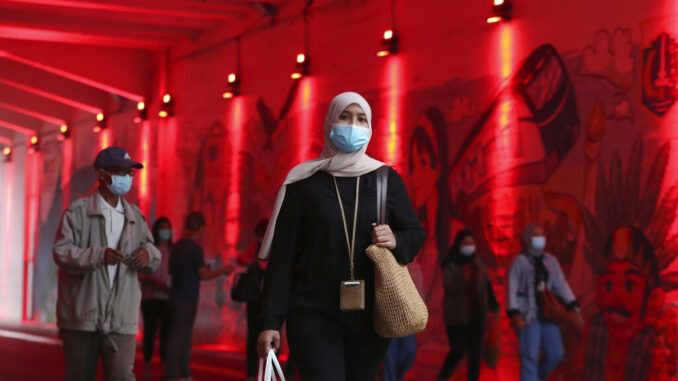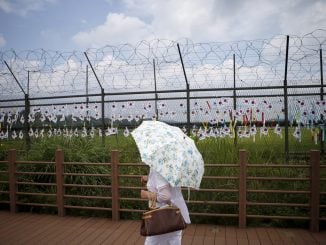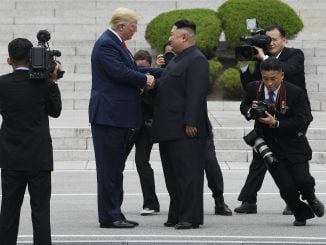
SEOUL, South Korea — South Korea’s health minister said Monday that the Seoul metropolitan area is now a “COVID-19 war zone,” as the country reported another 615 new infections and the virus appeared to be spreading faster.
The country has recorded more than 5,300 new infections in the past 10 days and Monday was the 30th day in a row of triple-digit daily jumps.
Most of the new infections were detected in the Seoul metropolitan area where health workers are struggling to stem transmissions tied to various places, including restaurants, schools, hospitals and long-term care facilities.
“The capital area is now a COVID-19 war zone,” Health Minister Park Neung-hoo said in a virus meeting, pleading for citizen vigilance.
He said the country may have to further increase social distancing to prevent the resurgence in the capital area from “exploding into a major outbreak nationwide and collapsing the health-care system.”
While South Korea managed to contain a major outbreak in its southeastern region in spring by channeling nationwide health resources and personnel, it’s less clear where the reinforcements will come if the virus wreaks havoc in the densely-populated capital area, where half of the country’s 51 million people live.
While President Moon Jae-in’s government had been eager to tout the country’s previous gains against the virus, there’s criticism that it gambled on its own success by moving quickly to ease social distancing restrictions to the lowest level in October even as the virus was still spreading.
Officials have moved to restore some restrictions in the capital area in in recent weeks, shutting down nightclubs, karaoke rooms and gyms, reducing in-person school classes and allowing restaurants to provide only deliveries and take-outs after 9 p.m.



